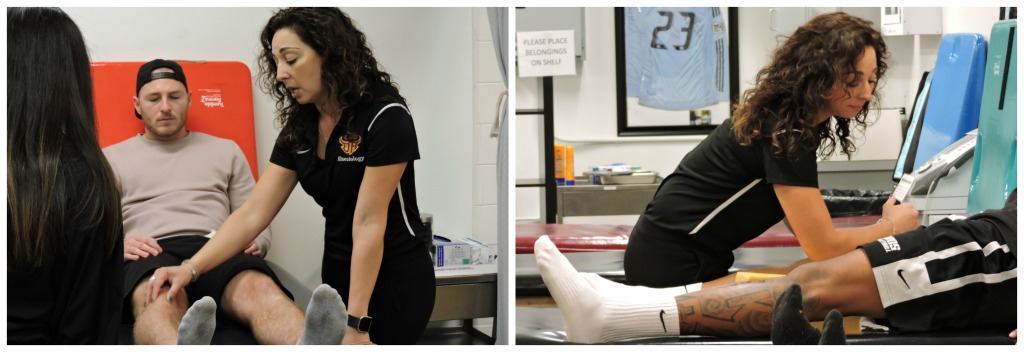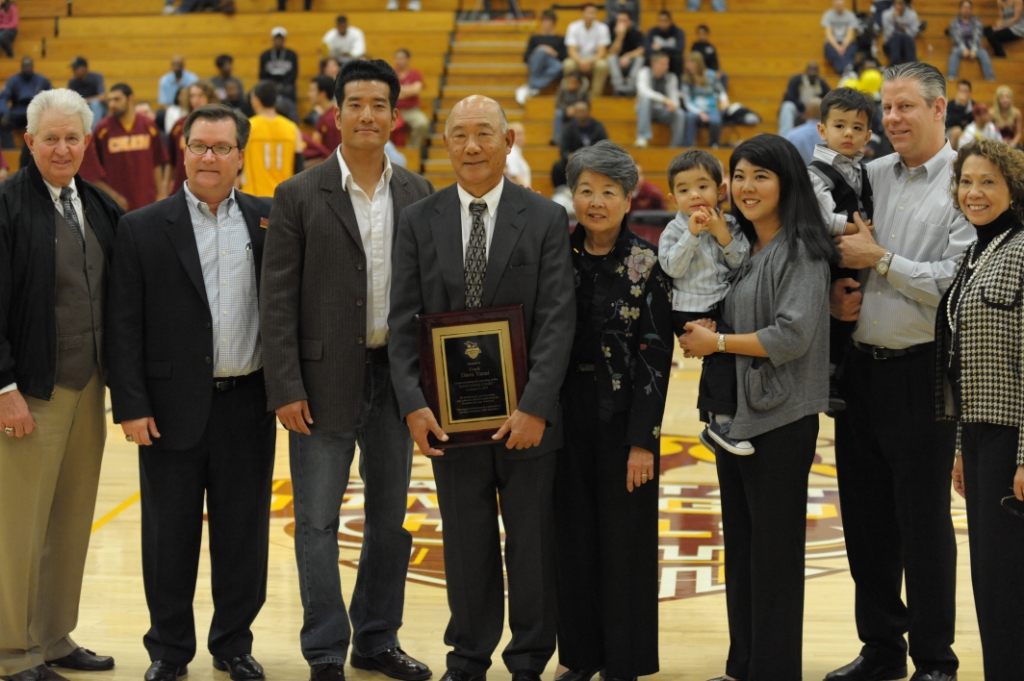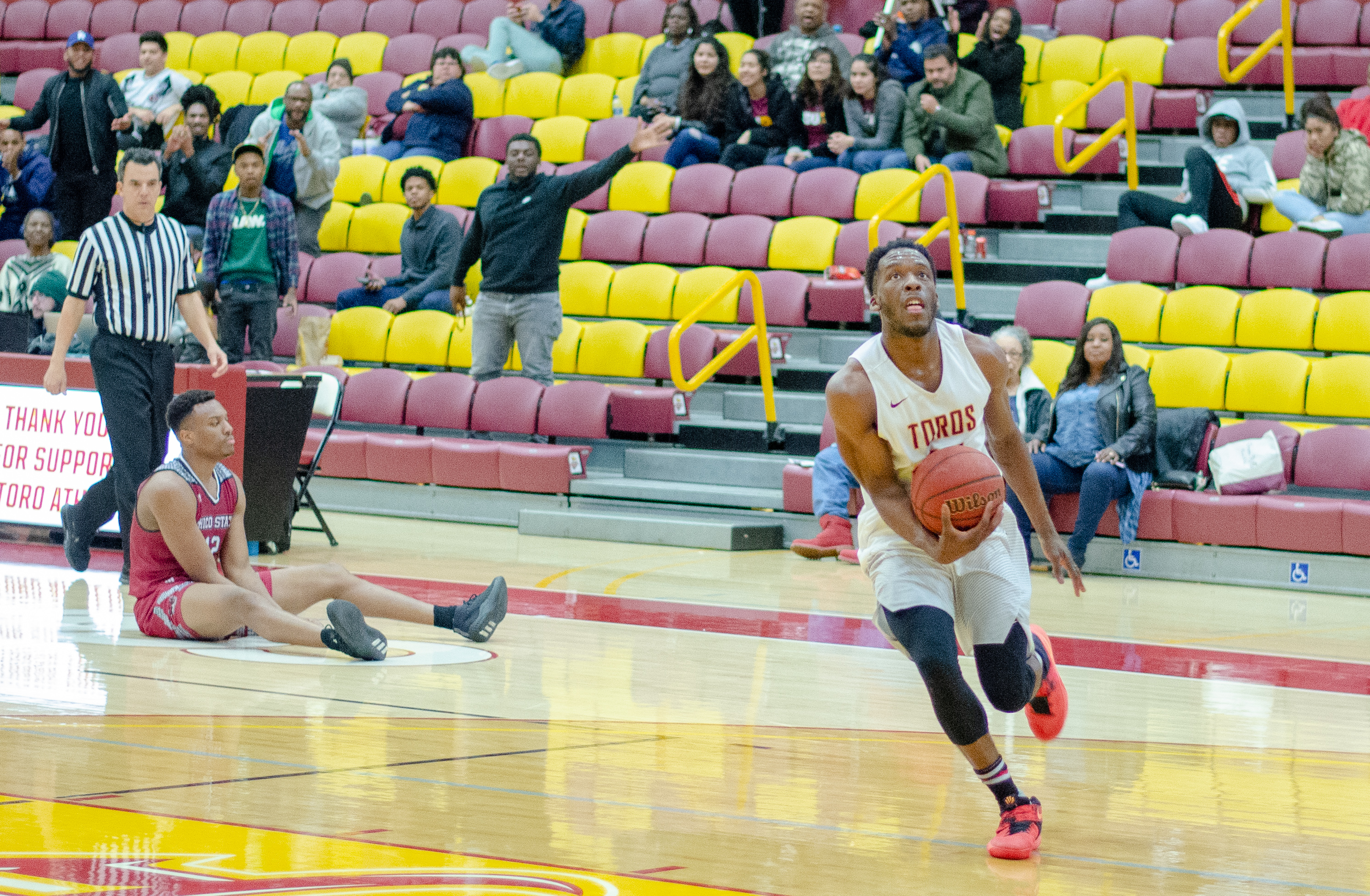Ashley Musick has been the Toro’s Head Athletic Trainer for Three Years. Photos by Albert Ledezma.
By Albert Ledezma
Sports Editor
The tools of Ashley Musick’s craft include tape, ice and her hands. The canvases she works with are the bodies of student athletes at California State University, Dominguez Hills. As head athletic trainer, it is Musick’s job to tape ankles, stretch sore muscle and administer ice, all to help develop, and cure, athlete’s bodies from injuries and illness.
But there is more beneath the surface. For Musick, the opportunity to help develop student-athletes beyond their accomplishments in the gym or on the field, is what drive her.
“This is a great opportunity to positively affect student athletes and develop them and teach them, not only take care of their bodies,” said Musick, “but also to develop them as a person.”
Musick enters her third year as CSUDH’s head athletic trainer and sixth overall with the university. In August 2015, Musick was named head athletic trainer after serving as the interim. She has been a certified athletic trainer for six years.
Musick attended CSUDH, where she received her bachelor’s degree in kinesiology, pre- physical therapy and pre-athletic training, with an emphasis in health science, in December 2009. But before receiving that degree, she wasn’t entirely sure what she wanted to do: she only knew she wanted a degree.
But after enrolling in a class taught by a professor who was the former head athletic trainer, her path manifested. After she asked him to volunteer at the university’s sports clinic as a student intern, “the rest was history,” she said.
She would then attend California Baptist University where she obtained a master’s of science degree in athletic training, where she graduated with high honors in 2012.
But her relationship with the CSUDH athletic department quickly brought her back.
“I’m very happy here [at CSUDH],” Musick said. “We’re moving in a really good direction right now. There has been a lot of positive change, there’s a lot more growth coming. And I am excited to be a part of it.”
The student-athlete population is very interesting at CSUDH, Musick said. There are athletes from different backgrounds. Some are there strictly for an education, some are walk-ons who want to compete at the university level, and others showed great promise in high school or community college but who weren’t quite ready for NCAA Division I athletics.
But all are students, and are athletes, and Musick sees her role, in large part, to use her “experience to kind of show (the athletes) that there’s people here to help them be successful on-and-off the field, [and] in the classroom,” Musick said.
Though working in this field may be “chaotic” because of the scheduling, those challenges also make her job exciting, she said.
“Every day is something different, there’s a new challenge, there’s a new opportunity for me to learn something,” she said.
An important aspect of her job is to cultivate healthy relationships with both athletes and coaches, to educate and teach them about the health and well-being of the student-athlete by being on the same page and complying with all NCAA regulations.
For instance, one NCAA regulation is that an athlete should not be approved to compete unless the trainer feels they are physically able to do so, which is determined by factors that might run counter to the thoughts of athletes, and coaches, when an athlete says they feel fine.
“If a coach (or athlete) and I don’t see eye to eye, it’s OK,” Musick said. “It’s going to happen. We’re going to disagree. There’s going to be issues. But, I think at the end of the day that comes with developing a relationship with the coach and knowing and explaining to your coach ahead of time that, I’m in this to help you be successful… it is because I’m looking out for the student-athlete.”
Though it may seem like, during games and athletic events, that Musick is on the sideline being a mere spectator, she says she is always working. She constantly watches athletes in order to recognize an injury while its happening, so she and her staff know the best way to take care of it. She is always prepared for any medical emergency, she said.
But above and beyond helping to maintain, preserve and improve an athlete’s physical state, Musick said she is just as concerned with working with them as human beings, something that makes her feel her profession is special.
“I am very passionate about…developing the person beyond the injury, beyond the success and accolades, beyond [the athletes] ability to perform at their sport,” Musick said. “I am interested in the development of the human and the person.”


